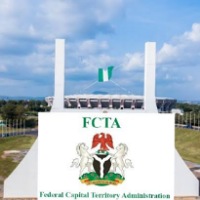Motoring
Toyota to stop making cars in Australia from 2017

SYDNEY – Toyota Motor Corp said on Monday it would stop making cars and engines in Australia by the end of 2017, marking the end of an era for a once-vibrant auto production base and the loss of thousands of direct and indirect jobs.
Toyota’s decision follows the planned exits of General Motors and Ford Motor announced last year and would leave no global automaker remaining in Australia as high costs and a strong currency make it an unattractive production base.
“We did everything that we could to transform our business, but the reality is that there are too many factors beyond our control that make it unviable to build cars in Australia,” Toyota Australia President Max Yasuda said in a statement.
About 2,500 jobs will be affected when the plant stops building cars in 2017, the company said.
 Toyota’s exit from Australia after more than half a century there is a setback to Prime Minister Tony Abbott’s conservative government, which is seeking to manage a slowdown in the $1.5 trillion economy as a decade-long mining investment boom slows.
Toyota’s exit from Australia after more than half a century there is a setback to Prime Minister Tony Abbott’s conservative government, which is seeking to manage a slowdown in the $1.5 trillion economy as a decade-long mining investment boom slows.
“This is obviously devastating news for everyone involved with Toyota. It’s devastating for me and for the government,” Abbott said in Canberra.
Union leaders were more vocal in their criticism of the government’s handling of the auto industry’s woes.
“The loss of the automotive manufacturing industry in Australia will have far reaching consequences around the country and throughout the economy,” said Australia Council of Trade Unions (ACTU) Secretary David Oliver.
“They’ve (the government) done absolutely nothing to keep Toyota in this country,” he added, warning that A$21 billion ($18.80 billion) would be wiped from the economy and that some regions would go into recession.
The ACTU groups the main Australian trade unions under an umbrella group.
BLOW TO MANUFACTURING
A pullout by Toyota had been widely feared because of the blow to the parts supply base from the flight of GM and Ford.
“It’s a huge moment for industry in Australia,” Industry Minister Ian Macfarlane told reporters in Canberra after Toyota’s announcement.
“Toyota have made no requests to us other than express their frustration with the difficulty they were having with the industrial relations process,” he said, when asked whether Toyota had sought financial assistance or other forms of aid.
Australia’s car industry includes about 150 companies working in sectors from components to tooling, design and engineering, with more than 45,000 people employed directly in the car and parts-making sectors, according to government data.
While Australians bought a record 1.14 vehicles last year, according to the Australian Federal Chamber of Automotive Industries, the proportion made domestically was a record low at barely 10 percent. Toyota was the top-selling brand, holding nearly one-fifth of the market.
Vehicle production in Australia has nearly halved in the past decade to just above 200,000 in 2012 from more than 400,000 in 2004. Sales of locally made vehicles have suffered in recent years as a stronger Australian dollar makes imported cars more competitive.
In contrast, global automakers have been building new factories and ramping up capacity in countries like Indonesia, where a burgeoning middle class and lower costs make it an increasingly attractive production base.
– REUTERS
Motoring
FCTA Pulls Plugs On Taxi Rank, Terminal Services Contracts

The Federal Capital Territory Administration (FCTA) has ended contracts with taxi rank and terminal operators due to their failure to meet engagement terms and conditions.
Mr. Ubokutom Nyah, the Mandate Secretary of the Transportation Secretariat, FCTA, made this announcement during a meeting with managers of these terminals and taxi ranks in Abuja.
Nyah clarified that due to the operators’ failure to fulfill their engagement terms, the FCTA had to terminate their contracts.
He instructed them to transfer control of the ranks to the Administration within three months, starting from Nov. 21.
He lamented the presence of unauthorized motor parks in the city and assured the readiness of the Administration to establish proper taxi ranks and terminals in the capital.
He revealed that personally visiting the city’s taxi ranks, terminals, and unauthorized motor parks gave him direct insight into the poor condition of these facilities.
He emphasized that as the federal capital city, Abuja deserves better, highlighting that the poor condition of these facilities attracts various criminal elements.
He said “We must rid Abuja of all these. I have gone round the taxi ranks, and of all the places I visited, not one is worthy to be called even a village motor park.”
The Mandate Secretary stressed that the intention wasn’t punitive; rather, it aimed to revamp the sector, introduce new engagement terms, and modernize taxi ranks and terminals in the federal capital.
He also highlighted the plan to increase the number of terminals and ranks where necessary, which would positively impact the administration’s revenue.
He emphasized that this measure was part of a broader effort to eliminate illegal motor parks in Abuja and curb the associated criminal activities.
In response, Mr. Adebisi Lawal, the Operator of Jahi Taxi Rank, praised the administration’s initiative to modernize the taxi ranks and terminals.
Lawal urged the administration to prioritize current operators’ involvement in the selection of new developers for the modernization of the taxi ranks and terminals.
Motoring
Power Show Sees Soldiers Batter LASTMA Officer

It was a show of power at the Ojota area of Lagos on Monday as soldiers pummeled an officer of the Lagos State Traffic Management Authority, (LASTMA).
Eyewitness accounts claim that the ugly scene played out around 8am, and saw about eight soldiers pounce on the yet to identified LASTMA official, while his colleagues took to their heels.
The video of the melodrama has gone viral, where the LASTMA official was appealing to the soldiers, who appeared bent on ‘teaching him a lesson’.
This onslaught comes on the back of a reported assault of a soldier at the same location by LASTMA officials last week.
It would appear that what played out today was the army asserting its authority and defending their khaki as the armed soldiers carried out what looked like a revenge mission.
Eyewitnesses further averred that the victim was rushed to a nearby hospital, after the soldiers left the scene.
It was gathered that the authorities at LASTMA has reported the incident to the military authorities who are said to be looking into the matter.
Meanwhile many members of the public are rejoicing that the soldiers have taught the crude LASTMA official that power is stronger than power, for all their atrocities against motorists on Lagos roads.
Motoring
Intra-City Fares Skyrocket By 98% Month-On-Month – NBS
The impact of the removal of subsidy on Premium Motor Spirit (PMS), otherwise known as petrol, has seen the pump prices of the product skyrocket with a corresponding increase in the cost commercial transportation in Nigeria.
According to the National Bureau of Statistics (NBS), intra-city bus transportation fares across Nigerian cities, measured between May and June 2023, increased from N649.59 to N1,285.41 in June 2023.
This translates to 98 percent growth or N635.82 within the month in view.
The NBS made the data available in its Transport Fare Watch report for June 2023.
In the report, the NBS also shared the breakdown of bus journeys within the cities per drop for constant routes; bus journey intercity (state route); charges per person, amongst others.
On a year-on-year basis, the report has it that bus fares rose by 120.63 percent from N582.61 paid by commuters in June 2022.
The average fare paid by commuters for bus journey intercity per drop rose to N5,686.49 in June 2023 compared to N4,002.16 in May 2023 indicating an increase of 42.09 percent, month-on-month.
The report read, “The average fare paid by commuters for bus journeys within the city per drop increased by 97.88 per cent from N649.59 in May 2023 to N1,285.41 in June 2023.
On a year-on-year basis, it rose by 120.63 per cent from N582.61 in June 2022.
“In another category, the average fare paid by commuters for bus journey intercity per drop rose to N5,686.49 in June 2023, indicating an increase of 42.09 on a month-on-month basis compared to N4,002.16 in May 2023.
“On a year-on-year basis, the fare rose by 55.25 per cent from N3,662.87 in June 2022.”
Biztellers reported that the twin forces of forex pressure and increasing price of Brent in the global market would likely see the pump prices of petrol, increased again in no distant time in Nigeria.











